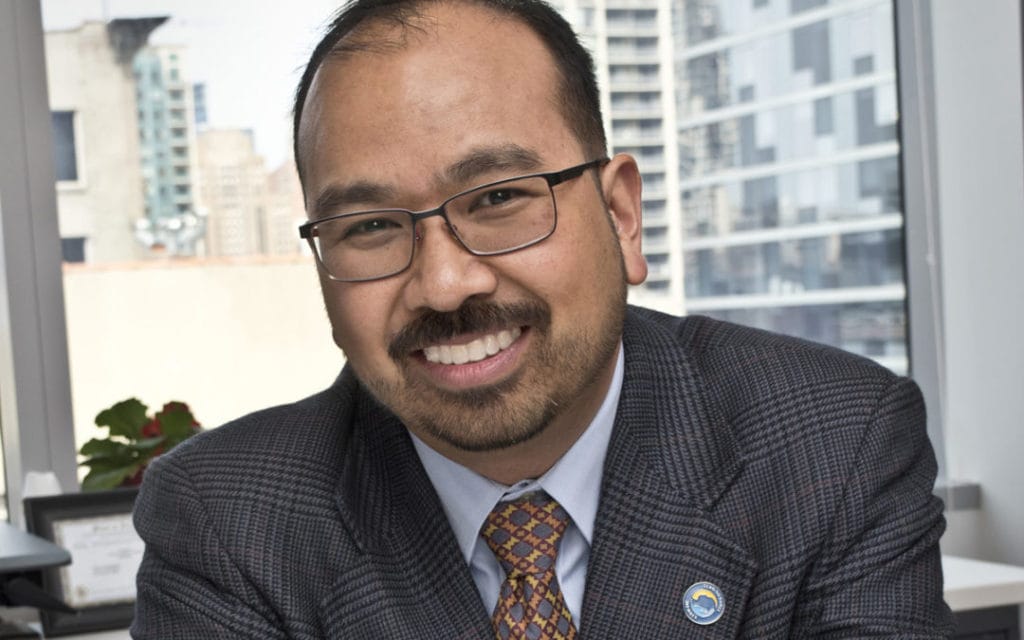Diversity-Informed Father Engagement in Infant and Early Childhood Mental Health / Barnard Center Lecture Series

Diversity-Informed Father Engagement in Infant and Early Childhood Mental Health
The field of infant and early childhood mental health promotes the relationships between children, prenatally through preschool, and their caregivers. Ideally, this includes those identified as mothers, fathers, second mothers, aunties and uncles, grandparents, kin and felt family, adoptive parents, foster parents, and early care and education providers. However, the emphasis on much of the field’s program and professional attention continues to be on biological mothers that both idealize and blame for children’s developmental outcomes. This lecture series presentation focuses specifically on the identity, concept, and role of fathers, fatherhood, and fathering. Every child has a father-story, from the very basic biological chromosomal story to the everyday, relationally intimate narrative, in the context of the full range of gender diversity. Despite the empirical evidence of fathers positive developmental influences on children’s development, IECMH program and professional efforts to be inclusive of fathers and father-figures have been slow and relatively ineffective.
In this lecture, we will:
- apply the diversity-informed practice framework to analyze and understand program and professional father engagement efforts through the lens of diversity-informed practice, taking into consideration the influences of intersectional and interlocking systems of oppression, such as sexism, racism, classism, ableism, heterosexism, transphobia, and homophobia;
- discuss why it is essential, not just a good idea, for organizations, programs, and professionals to engage fathers in services for and with their children and parenting partners; and
- learn about some of the innovative practices in father engagement and begin thinking about some ways you, your programs, and/or organizations can focus on or be inclusive of fathers while keeping in mind principles of diversity and equity.
About Nucha Isarowong, PhD, LCSW, IMH-E
Nucha Isarowong is the Director of the Advanced Clinical Training Program at the Barnard Center for Infant and Early Childhood Mental Health on the campus of the University of Washington. His clinical experience includes work with and on behalf of infants, children, and families in home and school settings. Most recently, he served as faculty at Erikson Institute in Chicago, IL, where he instructed classes in the Master of Social Work Program and the Infant Mental Health Certificate Program. His clinical and scholarship experience and interests address sociocultural, relational, and structural factors that influence social-relational dynamics and facilitate access to and utilization of resources and services by families caring for infants and children from the broad range of diverse communities. His current efforts focus on multi-level systems integration of diversity, equity, and inclusion principles in the context of father engagement practices and policies, integration of trauma-informed practice, generally, and in Part C Early Intervention, specifically, shifting understanding of disabilities and developmental differences, and affecting systems change. Nucha is a ZERO TO THREE Fellow (2012-2013), and currently serves on the coordinating council of the Academy of ZERO TO THREE Fellows. He also serves as a national workshop facilitator and member of the Executive Council of the Diversity-Informed Tenets for Work with Infants, Children and Families.
Share this post
Questions?
Please give us a call
We look forward to talking with you!
-
Phone
206-543-8528
-
Business hours
Monday – Friday
7:30am – 4pm
-
E-mail
pcrp@uw.edu
-
Mailing Address
Parent-Child Relationship ProgramsUniversity of Washington - Box 357231
Seattle, WA 98195-7231
-
Office Address
Parent-Child Relationship ProgramsUniversity of Washington
Health Sciences Building F-346
Seattle, WA 98195-7231
Prefer exploring on your own?
Check out our FAQ section
for answers to common questions
WE WANT TO CONNECT WITH YOU!
Feel free to fill out our contact form or call us at 206-543-8528
Frequently Asked Questions
Explore our FAQ section to find quick, helpful answers to the most common questions. If you don't find what you're looking for, click here to Contact us - we're here to help!